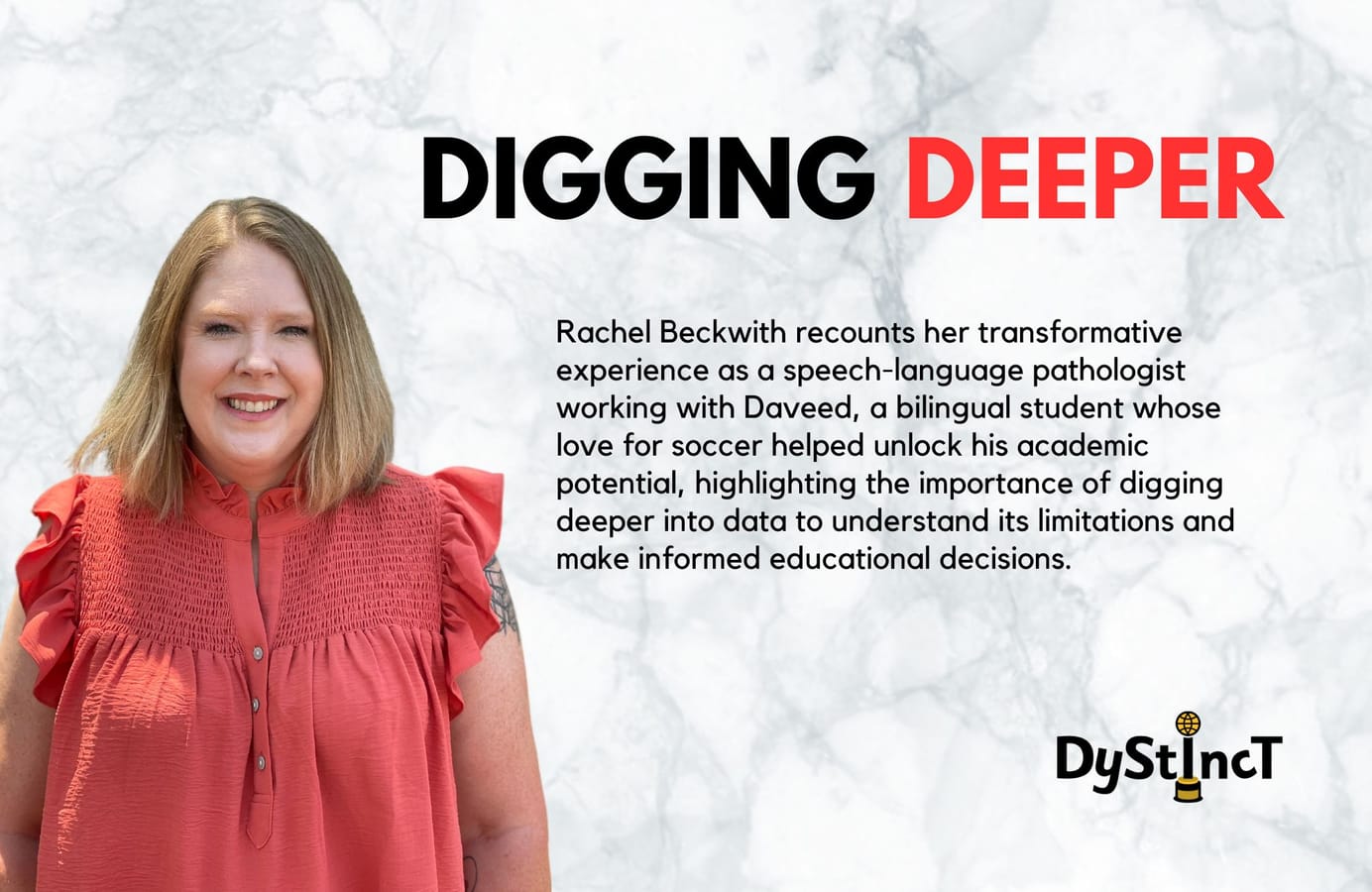
Issue 22: Digging Deeper | Rachel Beckwith
Rachel Beckwith recounts her transformative experience as a speech-language pathologist working with Daveed, a bilingual student whose love for soccer helped unlock his academic potential, highlighting the importance of digging deeper into data.
This post is for paying subscribers only
SubscribeAlready have an account? Log in


